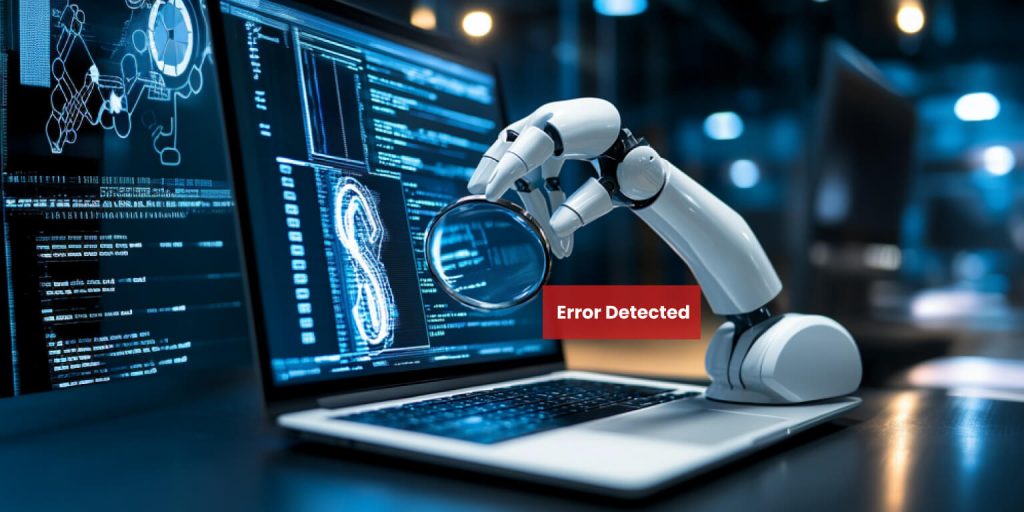Artificial intelligence is changing the way we do accounting. It automates repetitive and labor-intensive tasks to increase data accuracy using machine learning models. This transformation not only saves time but also allows professionals to focus on more strategic aspects of their work.
With 75% of the CPAs in the current workforce set to retire in the next decade and the rate of accountants declining rapidly, AI is becoming more important than ever. Small to medium-sized businesses are adopting AI at the highest level, promising a 43% growth rate from 2024 to 2029. This rapid adoption highlights the growing recognition of AI’s potential to streamline processes and improve efficiency.
Let’s look at some of the top accounting AI trends that have already been adopted by companies but are expected to grow in 2026. These trends show how AI is transforming traditional accounting.
What are the key AI trends to watch in accounting for 2026?
Many accounting processes, like manual bookkeeping, are becoming outdated with AI gradually taking up more space in the industry. This move reflects a broader trend in many industries, where automation is redefining traditional operations. In 2026, the role of AI is no longer limited to automating different accounting tasks; it’s about making every task more efficient and accurate. AI tools are evolving to take on more complex tasks, going beyond basic automation.
From basic automation to advanced AI tools
In the past, we’ve seen businesses use AI-powered tools, like QuickBooks Online, to automate different accounting functions, like invoicing, tracking daily transactions, and business expenses. These tools have set the stage for more advanced innovations. Yet its role was pretty much restricted to data entries and recording, but now this constraint is rapidly becoming obsolete as new AI technologies develop.
But now, the role of AI is becoming bigger by the day. You have tools like AccountsGPT that don’t just record data for you but also highlight problems present and provide specific solutions. This level of functionality empowers businesses to proactively address financial challenges they may be facing.
Enhancing financial insights and reducing workload
You can use these tools to generate financial reports, using their insights to evaluate vendor performance and identify tax deductions that you qualify for. These qualities make artificial intelligence indispensable in modern accounting.
AI tools can also be integrated into your organizational workflow to reduce the workload on your employees. This type of integration ensures that businesses can maintain high productivity levels while minimizing employee turnover and fatigue.
It can handle manual operations and simplify complex financial data for you, allowing you to focus on building strategies and have streamlined ecommerce accounting for your business. On the one hand, it’ll automate repetitive tasks, and on the other, it’ll help you prevent employee burnout. This balance ensures sustainable growth while maintaining employee well-being.
Big data in accounting
97.2% of companies are investing in big data, which is an AI-powered technology. This widespread use highlights the importance of data insights. For wider context, industry studies note that AI is expected to increase business productivity by 40%, underscoring why analytics capabilities are becoming core to finance. In accounting, it’s used to analyze past and current financial data to identify trends and growth opportunities. These insights assist corporations to make educated decisions that lead to success.
Large companies like Deloitte are already using machine learning models to discover cost-saving solutions and manage their investments. These AI-driven models analyze vast financial data to identify inefficiencies, optimize budgets, and forecast trends. Deloitte, for example, uses AI to detect financial risks, streamline tax compliance, and enhance fraud detection. By leveraging these capabilities, leading organizations make data-driven decisions, reduce costs, and stay ahead in the evolving financial landscape.
How AI is changing accuracy in accounting
Accurate data is the lifeblood of a good business. But with the daily deluge of information, keeping that data clean and reliable is a growing challenge.
The challenge of ensuring data accuracy
The role of data accuracy is unquestionable when it comes to making business decisions. Having reliable data serves as the foundation for creating effective strategies and informed choices. However, growing companies face challenges as they generate large amounts of data daily, making it difficult to handle and evaluate information efficiently. Manual techniques for verifying data validity are becoming less viable due to their time-consuming nature and susceptibility to human error.
How AI improves data accuracy

AI-powered technologies significantly outperform traditional methods in terms of speed and precision. AI can process and analyze large datasets quickly, highlighting patterns and trends that would be difficult for humans to detect. This capability provides businesses with a competitive advantage by identifying key opportunities and reducing errors.
However, AI doesn’t just stop at automating data processing; it continues to learn and adapt as it consumes more data, meaning it remains useful even as business needs evolve. For example, AI-powered solutions can evaluate historical financial data, such as sales and payments, to help you forecast future cash flow for better planning. Once again, showcasing how AI’s predictive analytic capabilities help keep organizations ahead of potential challenges.
What emerging AI technologies will impact accounting systems?
Artificial intelligence is transforming accounting by automating processes that enhance speed and data accuracy. Tasks that once took accountants days now take minutes, dramatically increasing productivity. This shift allows professionals to focus on higher-value responsibilities like financial planning and risk management.
Here are a few of the emerging AI technologies that are helping accounting achieve this:
Machine learning
Machine learning algorithms are trained on large datasets, which are used to improve data accuracy for financial analysis and decision-making. Their algorithm is programmed to continuously learn from new data, meaning its predictions become more accurate over time.
One key feature of machine learning is optical character recognition, which is widely used to process invoices by analyzing invoice numbers, total amounts, and dates. Then, it categorizes the transaction using past learnings, ensuring a high level of accuracy in financial records. Also, it’ll automatically record transactions within the ledger, eliminating the need for manual entry and improving processing times.
Predictive analytics
Predictive analytics is an AI-powered technology to identify risks and can be used to predict market changes so you can adjust your financial strategies accordingly. This also reveals opportunities for growth and optimization.
A common example of using predictive analytics is to predict cash inflows and outflows to plan your expenses and avoid liquidity problems. Keeping a steady cash flow is essential for running a business smoothly and avoiding financial trouble.
You can use this tool to make better investment decisions and adopt cost-saving solutions when working capital is low, leading to long-term financial stability.
AI chatbots
Businesses can now use AI chatbots, driven by language learning models, to not only track and record numbers but also to interpret and communicate complex financial data. These technologies make it easy to manage the complexities of accounting with less effort on your part.
You can use AI-powered tools to summarize financial data and comprehend tax codes. AI helps organizations maintain compliance and efficiency by simplifying complicated operations. They can be utilized for tax calculations and deduction optimization, allowing you to conserve as much of your profits as possible.
Robotic process automation (RPA)
RPA is another example of AI that automates repetitive tasks, like data entry and report generation. This software can mimic human actions to complete tasks accurately and can integrate with existing systems to streamline workflows.
Blockchain technology
This is one more type that is used to secure general ledgers and make financial transactions more transparent. Through creating a “tamper-proof” system, blockchain enhances data security and fosters trust in financial records.
How will AI trends in 2026 shape strategic decision-making in accounting?
AI can analyze large datasets, uncover patterns, and provide unbiased insights for more informed decision-making. As a result, many accountants are encouraged to upskill and learn modern data analytic tools to stay competitive in an industry undergoing massive transformation. For those interested in upskilling to meet the future demands of the accounting profession, exploring interactive AI courses can provide hands-on experience with essential tools like ChatGPT, machine learning, and predictive analytics.
With AI handling automation, accountants have an opportunity to focus on higher-level strategy, becoming key advisors to their organizations. This shift proves that AI isn’t overtaking human jobs, but rather, it’s enhancing them, to make their role more crucial than ever.
What are the ethical implications of using AI in accounting?
While there are vast benefits to using AI in accounting, there are also ethical implications one should be aware of. As artificial intelligence grows, organizations must consider the risks and responsibilities associated with its use.
Biases
The way AI operates is that you give it information; it comes in the form of a task, and its learning and interpretation will be based on it. However, the caveat with this is that the quality of its output solely depends on the quality of the data it’s trained on.
Since dataset algorithms are used here, AI receives training on your organization’s past financial data or information that inevitably had some human involvement. If your past data has biases, AI could accidentally make them worse, giving you inaccurate insights.
When the likelihood of having subjective data in these training models is so high, you can’t help but expect distorted or biased results. This could also easily mislead organizations, resulting in poor financial decision-making.
The best course of action is to train AI with unbiased data and review your previous records for any errors, so you have objective results to help you make accurate decisions. Maintaining variety in training data and periodically assessing AI models can help minimize potential biases.
Data privacy
In the accounting industry, you’re working with confidential and sensitive information on a daily basis. It’s important to handle these datasets carefully since they can easily be hijacked.
For example, in 2017, Equifax encountered a data breach that exposed confidential financial information of over 147 million clients. This led to a huge recall and certainly a great deal of devastation on their client’s end. This all the more enforces the urgent need for strong cybersecurity measures within financial institutions.
Make sure that you’re installing encryption software, establishing access controls, and implementing rigorous policies to protect not just your data but your clients’ as well.
The bottom line
Overall, it’s clear that artificial intelligence is transforming accounting for businesses, making processes more efficient and automated. However, it isn’t here to replace human beings. Instead, in 2026, you will see professionals leveraging AI to streamline accounting tasks while focusing on strategic decision-making.
By automating data entry, financial reporting, and compliance monitoring, AI allows accountants to dedicate more time to advisory roles, fraud detection, and financial forecasting. Companies that integrate AI effectively will gain a competitive edge by improving accuracy, reducing costs, and making data-driven decisions faster than ever before.






